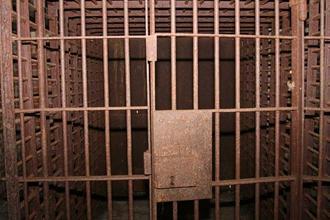
People convicted of certain drug crimes or violent crimes in federal court face stiffer penalties if they committed the crimes on behalf of a gang. Their prison sentence will be increased up to ten years.
In this article our experienced Las Vegas criminal defense attorneys explain the federal law for “criminal street gangs” in Nevada. Scroll down to learn what qualifies as criminal gang behavior, how to defend against these charges, and possible penalties.
The Federal Law of Criminal Street Gangs
Definition of “gang”:
In order to understand how gang behaviors can be criminal, it is necessary to define what a gang is. The legal definition of a “criminal street gang” under federal law is a club of five or more people where the following three conditions are true:
- one of the group’s primary purposes is to commit either (a) federal drug felonies that carry prison sentences of at least five years, or (b) federal violent felonies that involve the use of force against someone else;
- the group’s members have engaged in a continuing series of drug or violent felonies in the last five years; AND
- the group’s activities affect interstate or foreign commerce
Therefore, the federal definition of a criminal street gang is very narrow. If a gang has too few members, does not have a criminal history, or does not commit serious drug or violent crimes, then 18 U.S.C. § 521 does not apply.
Gang charges and underlying crimes
A defendant is never prosecuted in federal court merely for acting on behalf of a gang. Rather, defendants in federal gang cases face at least two charges: (1) an underlying drug or violent crime, AND (2) committing the underlying drug or violent crime on behalf of a gang.
Example: John is a member of a street gang in Henderson, NV. He traffics cocaine to California to make money for the gang. If caught, John may be initially booked at the Henderson Detention Center and later charged with two crimes in federal court: (1) the drug trafficking, and (2) doing the trafficking on behalf of the gang.
As stated above, federal prosecution for gang activity in Nevada is limited to drug crimes and violent crimes. Specifically, a person may be prosecuted for gang activity only if he/she allegedly committed one of the following underlying crimes on behalf of the gang:
- a federal felony involving a controlled substance (as defined in the Controlled Substances Act (21 U.S.C. 802)) for which the maximum penalty is not less than five years; OR
- a federal felony crime of violence that has as an element the use or attempted use of physical force against the person of another; OR
- a conspiracy to commit either of the above
Therefore, a gang member who (for example) shoplifts on behalf his gang would not be prosecuted for violating federal “criminal street gang” law. This is because shoplifting is not a qualifying drug crime or violent crime in Nevada.
Intent to promote gang activity
A gang member should not be convicted of violating 18 U.S.C. § 521 in Nevada if he/she did not realize the gang commits crimes or if he/she did not knowingly commit a crime on behalf of the gang. In other words, a gang member facing federal drug or violent crime charges may also be convicted of federal gang charges only if the following two conditions are met:
- the defendant participates in a criminal street gang with knowledge that its members engage in or have engaged in a continuing series of drug and violent crimes; AND
- the defendant intends to promote or further the felonious activities of the criminal street gang or maintain or increase his or her position in the gang.
Consequently, a gang member who commits a crime independent of the gang should not be charged with Nevada’s federal gang enhancement.
Example: Jim is a gang member in North Las Vegas. The U.S. Marshals Service arrests Jim after he stabs a federal judge as revenge for sentencing Jim’s brother to prison. As long as Jim acted out of his own interests and did not commit the assault in furtherance of his gang, then Jim may face federal battery or attempted murder charges, but not federal gang charges.
Again, just because someone is in a gang and also commits a crime does not necessarily trigger federal prosecution for criminal street gangs. The gang member is liable in Nevada only if he/she intended to act in furtherance of the gang’s criminal activities.
Prior criminal record
Another condition of federal criminal street gang law is that the defendant must have been convicted within the past five (5) years of either:
- a federal or state crime involving a controlled substance (as defined in the Controlled Substances Act (21 U.S.C. 802)) for which the maximum penalty is not less than 5 years; OR
- a federal or state crime of violence that has as an element the use or attempted use of physical force against the person of another; OR
- a federal or state felony that by its nature involves a substantial risk that physical force against the person of another may be used in the course of committing the offense; OR
- a conspiracy to commit either of the above
Therefore a gang member facing federal prosecution for a drug crime or a violent crime can also be prosecuted under 18 U.S.C. § 521 only if he/she has a criminal record within the last five years involving another drug crime or a violent crime. Note that juvenile delinquency does count as a prior conviction as long as the act involved violence or drugs.
Federal versus Nevada criminal gang law
The Nevada crime of criminal street gangs is much broader than the federal law. Whereas federal law only punishes defendants for committing certain drug felonies and violent felonies, Nevada law applies to any criminal act done in furtherance of a gang. Nevada state law potentially carries harsher penalties than federal law as well.
Defenses to Federal Criminal Street Gang Charges
How best to defend against federal criminal street gang allegations depends on a multitude of factors particular to the individual case. A good Nevada federal criminal defense attorney may take the position that:
- There was no gang. The federal definition of a street gang is extremely specific in terms of the size of the gang and its activities. If the defense attorney can show that the defendant’s “gang” does not meet all the necessary conditions for conviction, the charge should be dropped.
- There was no intent. A gang member who commits a crime separately from the gang is not liable under 18 U.S.C. § 521. If the U.S. Attorney’s Office cannot prove beyond a reasonable doubt that the defendant intended to commit the crime on behalf of the gang, the defendant may still face conviction for the underlying crime but without gang penalty enhancements.
- There was no crime. A defendant may not be convicted of gang activity in Nevada Federal Court if he is not also convicted of an underlying drug crime or violent crime. If the defense attorney can get charges for the underlying crime dismissed, then the gang enhancement charge will be automatically dismissed as well.

Penalties for Federal Criminal Street Gangs Convictions
A federal judge in Nevada will order that a defendant serve up to ten (10) additional years in Federal Prison for violating criminal street gang law. Remember that this is an enhancement of the original sentence for the underlying drug crime or violent crime.
Example: Jonas gets convicted in Nevada federal court of both trafficking cocaine and acting in furtherance of his gang. The judge orders 10 years for the trafficking and 10 years for the gang enhancement. Jonas’s total sentence is 20 years.
Remember that these two sentences are served consecutively (one after the other) under Nevada federal law.
State penalties
Similar to federal law, the sentence for committing street gang crimes is an enhancement of the underlying crime that the defendant committed. The state judge will order an additional sentence of one to twenty years. However, this sentence may be no longer than the sentence for the underlying crime.
Federal Courts and Prisons
Note that all federal criminal cases in Nevada are prosecuted in either one of two courthouses: The Lloyd D. George Federal Courthouse in Las Vegas, or the Bruce R. Thompson Federal Courthouse in Reno.
Also note that most people incarcerated for federal crimes in Nevada are housed in either the North Las Vegas Detention Center in North Las Vegas or the Washoe County Detention Center in Reno.
Arrested? Call . . . .
If you are facing federal charges for criminal street gang crimes, phone our Nevada federal criminal defense attorneys for a consultation. We may be able to get the charges reduced to a lesser offense or dismissed altogether. Otherwise, our experienced trial lawyers will zealously fight for a “not guilty” verdict from a jury.
Also see our article on criminal gang recruitment.
In California? See our article on Penal Code 186.22 PC.

